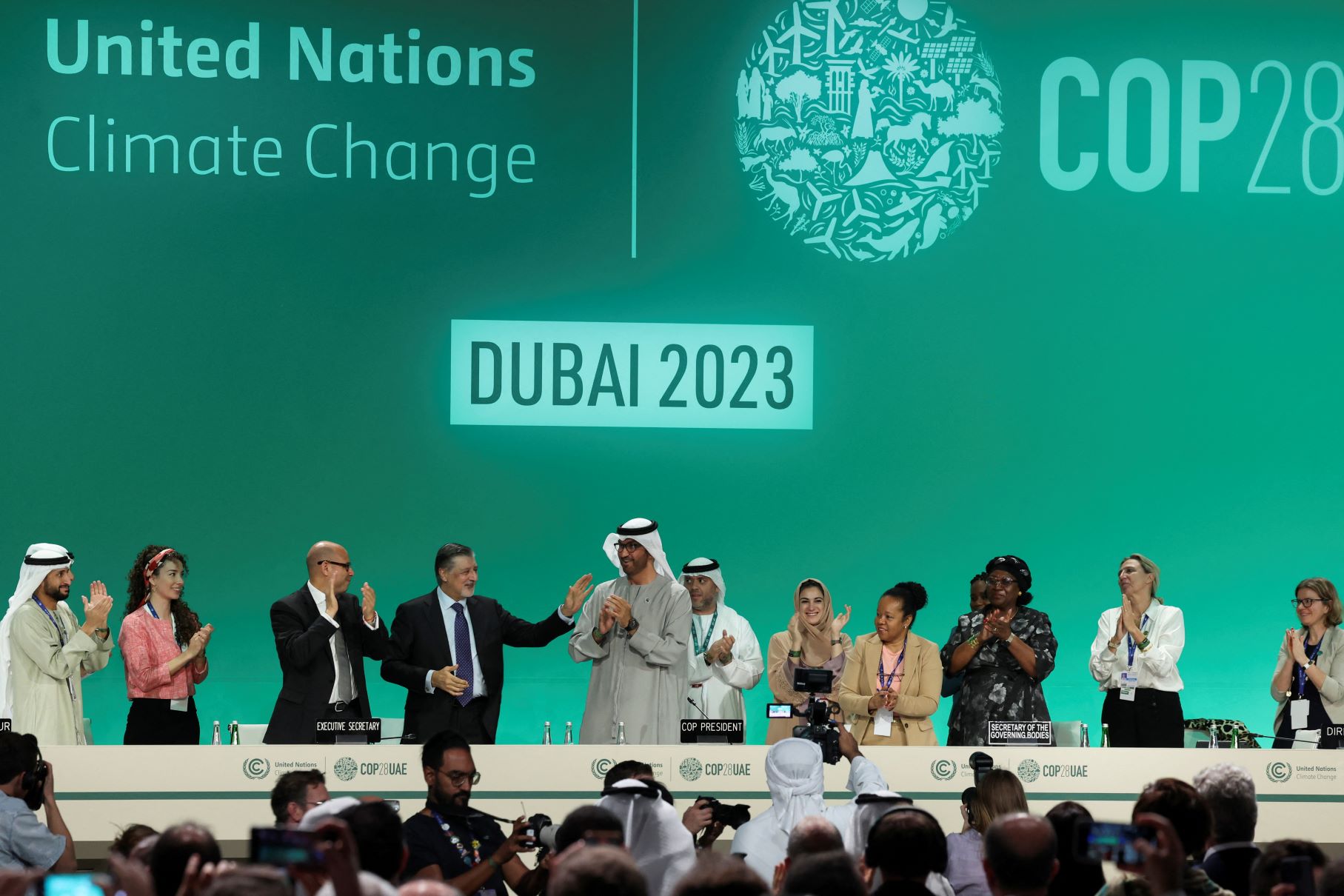Roads closed as a record 97,000 guests descended on Dubai for the UN’s COP28 climate conference, which opened on Thursday. They included King Charles, Bill Gates, Narendra Modi, Lula da Silva, Emmanuel Macron, Kamala Harris, Rishi Sunak and US climate envoy John Kerry – though not, sadly, Pope Francis, prevented from attending by health reasons. Will royal, plutocratic and popular figures be enough to make up for any lack of divine approval, and deliver the climate progress our overheating world badly needs?
From the point of view of the United Arab Emirates as host, and from the Middle East, there are several key objectives. One is to run an efficient event that makes significant advances on key issues.
Two is to move on from the disapproval the host nation has faced, mostly from Western media. The COP28 President Dr Sultan Al Jaber has faced criticism over his continuing role as chief executive of Abu Dhabi National Oil Company (ADNOC). His speech at the event’s opening, however, made clear that bringing in oil and gas companies to the process hadn’t been easy but had now resulted in many of those companies adopting net-zero 2050 commitments. “I will run an inclusive and transparent process, one that encourages free and open discussion between all parties,” Al Jaber insisted.
In the opening days, the UAE has already found ways to move the conversation to areas where developed countries have failed on their promises, and enlist diplomatic sympathy from developing nations tired of Western lectures.
Three is to ensure that final declarations focus on eliminating emissions, not fossil fuels.
Four, and the most important of all to the outside world, is to deliver real climate progress, with Al Jaber pledging it will be a “COP of action.” Middle Eastern countries have serious climate vulnerabilities. They face further rises to already extreme temperatures, water shortages, desertification and dust storms, and rising sea levels threatening heavily-developed shorelines.
The event has begun well. On the first day, delegates agreed to operationalize the “loss and damage fund,” which will help vulnerable countries deal with the unavoidable effects of climate change. The UAE and Germany will contribute $100 million each, and the US and Japan have also agreed to pay in.
Finance is a central part of the talks, befitting Dubai’s status as a global business hub, and Abu Dhabi’s possession of two of the world’s biggest sovereign wealth funds. The UAE on Friday announced a $30 billion climate investment fund, which aims to “improve access to funding for the Global South.”
It looks likely that developed countries will now reach their much-delayed pledge from 2009 to commit $100 billion annually in climate finance to lower-income countries, even though this has been eroded by inflation.
Carbon trading is essential to allow finance to find its way to the lowest-cost ways of cutting emissions globally. That is the intention of Article 6.4 of the 2015 Paris Agreement, for which a deal was struck at last year’s COP27 in Sharm El Sheikh, but leaving many details unsettled.
Much diplomatic attention focuses on the wording of the final declaration: whether it will “phase-out” or “phase-down” fossil fuels, and whether this is “unabated” – meaning fossil fuels not using carbon capture and storage (CCS) or all fossil fuels regardless of their emissions levels.
The recognition of CCS as a valid approach is vital not just to oil-producing states, but worldwide. In this, the UAE and Saudi Arabia should have support from coal-heavy India and China. The Biden administration has also rolled out massive incentives for CCS. Most environmental groups, though, are ideologically hostile to any technology linked to fossil fuels, and the EU is at best lukewarm in support.
Other parts of greening the traditional energy industry, notably cutting leaks of methane, would deliver vital near-term climate progress. But India seems reluctant, because of its large coal industry, and also concerns about the large share of the greenhouse gas that comes from agriculture, livestock and burning crop wastes. Instead, it is pushing a biofuel alliance.
In contrast, the goal of tripling renewable energy capacity globally by 2030 is widely popular. With current momentum, it looks readily achievable. The UAE’s world-record low solar costs and the expansion of state renewables company Masdar make this a goal it can readily promote.
Doubling the rate of energy efficiency gains by the same date is much more doubtful: progress on efficiency has been stubbornly incremental over the decades, only gaining pace when energy prices soar. But oil and gas prices have moderated since last year; renewables costs, at least for solar and batteries, are back on a falling trend too.
The global stocktake, an essential part of the Paris Agreement process, will reveal how dangerously close we are already to exceeding the limit of a 1.5-degrees Celsius increase in global temperatures from pre-industrial levels. The crowd of delegates, from famous to humble, look set to deliver some good, solid progress – but inevitably short of what an emergency requires. The Dubai weather is pleasant at this time of year, but the world endured its hottest October on record, in this, the planet’s hottest year on record. Perhaps holding the event in a Gulf August would have brought the peril home more vividly.
Robin M. Mills is CEO of Qamar Energy, and author of The Myth of the Oil Crisis. X:Â @robinenergy






